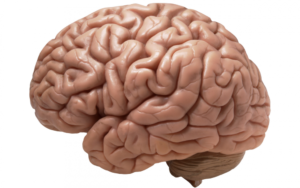It is difficult not to think that education these days is all about reading, writing and mathematics. Martha Nussbaum in her book “Not for Profit – Why Democracy needs the Humanities” (Princetown University Press) says “We must resist efforts to reduce education to a tool of the gross domestic product…rather it should be to teach students to think critically and to become knowledgeable and empathetic citizens.” Here Here!!
-
-
100% of the future…
Great to hear Bringing up Britain today on Radio 4 discussing the importance and role of Critical Thinking and Philosophical Enquiry in schools.
This is a lovely quote from Nicky Cox on the programme: “Children are 27% of the world’s people, but 100% of the future”
So true… more of this please!!
If you missed it click here for the link
-
Brain Awareness
This week is International Brain Awareness week… there are lots of fascinating lectures and events around the country. Here are a few of the lecture titles that we think children would love to discuss in a p4c session!
What makes the human brain different?
Are animals creative thinkers?
Why can’t we tickle ourselves?
Let’s think about thinking!
-
We need to make time for Philosophy!
“Open ended, inclusive, thought provoking. We need to make time for philosophy.” This comment is from one of the teachers we were working with today in Central London. There were lots of enthusiasm for the activities, games and the enquiry and this feedback sums up the session:
“Brilliant! Many activities were covered and ways to adapt them as well as giving us the experiences we will be giving our pupils. It’s given me many ideas to take back to the classroom…”
-
While the storms rage…
Yesterday, while storms were raging outside, we were with a very motivated group of teachers in Leytonstone exploring what happiness means, what the difference between happiness and contentment may be and whether a person needs to have felt sadness in order to appreciate happiness.
Here are some comments from the training session:
“Amazing – really developed my understanding of “thinking” and what to expect from children.”
“Really clear. Great examples. All relevant – lots of examples and models of how to introduce topic ideas and games.”
“Really good stimulus and facilitation of discussion. I’ll definitely be doing P4C sessions with my class now. Thank you.”
-
What is happiness?
What is happiness? Do we experience happiness differently? Are there different levels of happiness? Do we need to feel sadness to appreciate happiness? These were all questions which came out of the Inset training session this week in London and here’s some of the feedback from the session:
“Very deep thinking required but really engaging and interesting.”
“Lots of opportunity for really insightful discussion. Excellent practical ideas to use with the children.”
“Extremely useful, delivered brilliantly. Really useful both for self practice and working with children.”
“Well paced, challenging with time to reflect. Intriguing and thought provoking…”
-
Great thinking!
Wow – great thinking in the latest school we’ve worked with! We loved working with 25 enthusiastic staff members, teachers and TAs. Everyone got involved and the training session flew by…
“Really well presented by both ladies. They clearly both knew what they were talking about and delivered it in a very effective way. Really interesting way to look at the teaching of philosophy and how it can be built into the primary curriculum.”
“Very well presented. I liked the way there was enough time without the need to rush to the next thing. Content was informative and gives me ideas to use in class.”
-
Does the Brain Rest?
-
Philosophy Wall – what do you think?
Our philosophy wall is there during training for people to post questions or thoughts. These are some thought provoking offerings from a recent training session in London:
“Is it possible to stop thinking?”
“Is it ever OK to steal?”
“Do we all see things in the same way – eg does the colour red look the same to me as it does to someone else?”
“Deja vu – how is it possible to have seen / experienced something that has never happened before?”
What do you think?
-
With the end of a glorious summer and the start of a new school year we have been traveling far and wide to deliver p4c training. Our first Inset day was in Northampton with a very enthusiastic group of teachers who really threw themselves into the training. Here are a couple of their comments:
Presentation – “Informative and clear, brilliant delivery and enthusiasm in subject.” “Very friendly, made me feel I could share my views and opinions.” “Clear and people centred, felt comfortable, a good model of how to conduct a session.”
Was the session useful? “Yes, very – underpins our goals for S and L and enquiry based learning.” “Fantastic to encourage those open ended, thought provoking questions and a reminder that less is more! Many thanks.”

